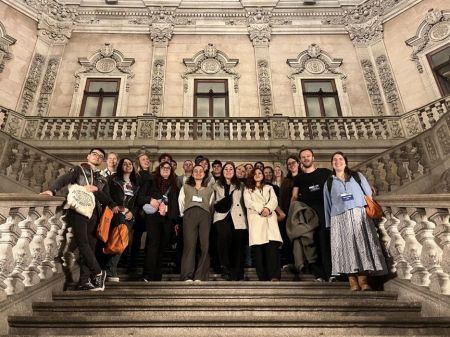We are pleased to share news of a new book relevant to…
African Ministers agree to support co-operatives

Africa’s tenth Ministerial Conference on the theme of co-operatives was held a month ago in Rwanda.
The meeting brought together 14 ministers from across Africa to focus on ways of supporting the co-operative enterprise model and engaging with governments.
At the opening of the event from 25-26 October, Rwanda’s Prime Minister Dr Pierre Damien Habumuremyi called on participants to increase awareness of co-operatives across Africa and the model’s contribution to development and the United Nations’ Millennium Development Goals.
He said: “This year of co-operatives has created an opportunity for the global co-operative movement and has allowed Governments worldwide to discuss and take resolutions on the future of co-operatives.”
African governments should also promote the formation and growth of co-operatives among individuals and institutions to address common economic needs, according to the Prime Minister, and policies, laws and regulations to support co-operative formation and growth should be established.
He added: “The above objectives are clear and meaningful. They show how co-operatives are engines of economic growth that offers a dynamic and flexible business model in production, marketing and service delivery.”
Dame Pauline Green, ICA President, gave greetings to the conference on behalf of the worldwide movement. Following the event, Dame Pauline said the ICA believes Africa is the answer to providing food for the world when global population is expected to reach nine billion by 2050.
She said: “We believe that we can make a significant contribution to solving the issues of food scarcity and food security. We have the agricultural and financial expertise needed to build independent grassroots networks and supply chain networks that could make a significant starting point for the peaceful and indigenous evolution of not just pockets of African agricultural growth, but whole regions.
“The UN and its agencies have the agenda, the infrastructure and the resources. It is up to us all to put this together.”
Under the theme Co-operative Enterprises Build a Better Africa, the meeting agreed a number of resolutions which included supporting the formation of laws and policies to support the sector; look at establishing an integrated financial co-operative at country and regional levels; to ensure education on the creation and sustainability of co-operatives is implemented; to increase regional collaboration and trade among co-operatives; and to create a level playing field for co-operative enterprises in terms of taxation.
These recommendations, for which action will take between now and 2015, were agreed by the following countries: Angola, Algeria, Botswana, Burkina Faso, Burundi, Cameroon, Republic Of Congo, Egypt, Equatorial Guinea, Ethiopia, Gabon, Gambia, Kenya, Lesotho, Malawi, Mali, Mozambique, Namibia, Rwanda, Swaziland, South Africa, South Sudan, Tanzania, Togo, Uganda, Zambia and Zimbabwe.
During the meeting, Rwanda’s Minister of Trade and Industry, François Kanimba noted that co-operatives are making great contributions to the country: “[The] co-operative movement in Rwanda contributes now to the economic well being of two million people (members), most of them living in rural areas. Co-operatives legally registered are more than 5,000 and have been formed in various sectors of our economy.”
The ICA Vice-President for Africa, Stanley Charles Muchiri urged African co-operatives to take full advantage of the positive environment created by the 2012 International Year of Co-operatives. “During this year, co-operatives have been profiled as important business model which can be useful addressing social injustices especially those which touch on gender and youth,” he said.
The next ministerial conference is scheduled to be held in Gaborone, Botswana in October, 2015.
Photo: At the conference were Katabarwa Augustin, Chairman of the National Cooperatives Confederation of Rwanda (NCCR); Minister Kanimba and Mr. Stanley Charles Muchiri.




